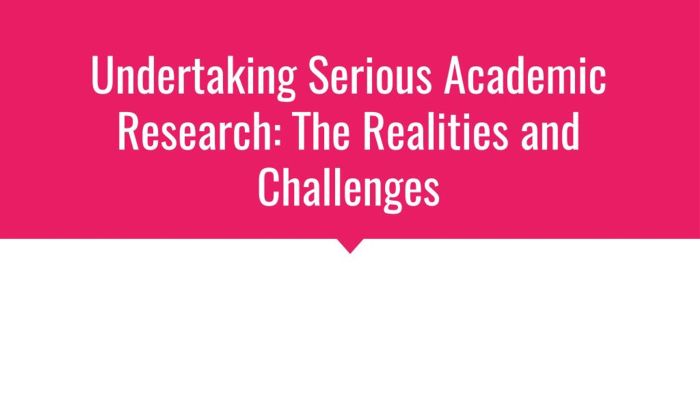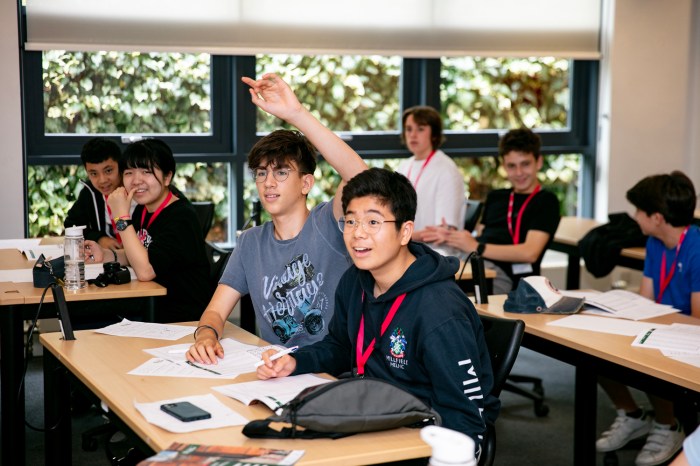Earnest scholarship sets the stage for this exploration, delving into the dedication, rigor, and profound impact of scholarly pursuits driven by genuine intellectual curiosity and commitment. This examination will explore the defining characteristics of earnest scholars, their approaches to learning and research, and the significant contributions they make to their respective fields. We will also investigate how to cultivate this vital approach in educational settings and beyond.
From defining the core values of earnest scholarship and contrasting it with other academic approaches to examining case studies of its positive impact, this analysis aims to provide a comprehensive understanding of this crucial aspect of intellectual endeavor. We will analyze personality traits, learning styles, and the challenges and rewards faced by those who embrace this path, offering practical strategies for fostering earnest scholarship in various contexts.
Defining “Earnest Scholarship”

Earnest scholarship transcends the mere accumulation of knowledge; it represents a deep and committed engagement with the scholarly process, driven by intellectual curiosity and a genuine desire to contribute meaningfully to the field of study. It’s characterized by rigor, integrity, and a profound respect for the pursuit of truth.
Earnest scholarship prioritizes the careful and meticulous examination of evidence, the rigorous application of methodologies, and a commitment to intellectual honesty. It involves a willingness to engage with diverse perspectives, even those that challenge one’s own preconceived notions. The pursuit of knowledge is not viewed as a competitive endeavor but rather as a collaborative journey, fostering intellectual exchange and the advancement of shared understanding.
Core Values Associated with Earnest Scholarship
The core values underpinning earnest scholarship include intellectual honesty, rigor, perseverance, and a commitment to the advancement of knowledge. Intellectual honesty demands a rigorous self-assessment of biases and a commitment to transparency in research methods and findings. Rigor involves meticulous attention to detail, the application of appropriate methodologies, and a critical evaluation of evidence. Perseverance is crucial in overcoming obstacles and challenges inherent in the research process. Finally, a commitment to the advancement of knowledge drives the scholar to seek new insights and contribute to the broader scholarly community. These values collectively contribute to the production of high-quality, reliable scholarship.
Comparison of Earnest Scholarship with Other Approaches to Academic Study
Earnest scholarship differs significantly from approaches that prioritize solely grades, publications, or career advancement. While these factors may be considered, earnest scholarship places a greater emphasis on the intrinsic value of the scholarly pursuit itself. In contrast to a purely instrumental approach to academia, where knowledge is viewed as a means to an end, earnest scholarship views the pursuit of knowledge as a valuable end in itself. Furthermore, unlike some approaches that may prioritize speed and quantity over quality, earnest scholarship emphasizes depth, accuracy, and the rigorous validation of findings. It embraces a slower, more deliberate process of inquiry, prioritizing the integrity of the research over rapid publication.
Conceptual Framework for Understanding Earnest Scholarship
A conceptual framework for understanding earnest scholarship can be visualized as a three-legged stool. One leg represents the intellectual rigor involved in the research process – meticulous methodology, careful analysis, and critical evaluation of evidence. The second leg is intellectual honesty – transparency, acknowledgement of limitations, and a commitment to unbiased interpretation of results. The third leg is the commitment to knowledge advancement – a desire to contribute meaningfully to the field, share findings with the scholarly community, and foster further research. The stool only stands firmly when all three legs are equally strong and supportive; the absence or weakness of any one leg compromises the stability and integrity of the entire structure. This framework emphasizes the interconnectedness of these core components in defining earnest scholarship.
Characteristics of Earnest Scholars

Earnest scholars are driven by a deep-seated intellectual curiosity and a genuine desire to understand the world around them. Their commitment extends beyond simply achieving academic success; it encompasses a dedication to rigorous inquiry and a pursuit of knowledge for its own sake. This dedication manifests in several key personality traits, learning styles, and approaches to research.
Earnest scholars often possess a unique blend of intellectual humility and unwavering determination. They readily acknowledge the limits of their knowledge while simultaneously maintaining a persistent pursuit of understanding. This combination fosters a continuous cycle of learning and self-improvement.
Personality Traits of Earnest Scholars
Earnest scholars typically exhibit a number of key personality traits that contribute to their success. These traits are not mutually exclusive and often intertwine to create a holistic profile. For instance, intellectual curiosity is often accompanied by perseverance, while a strong work ethic supports meticulousness in their research.
These traits include, but are not limited to, intellectual curiosity, perseverance, meticulousness, intellectual humility, a strong work ethic, and a genuine passion for their field of study. The intensity of these traits can vary from individual to individual, but their presence is generally indicative of an earnest scholarly approach.
Learning Styles and Approaches of Earnest Scholars
Earnest scholars rarely rely on passive learning methods. They actively engage with the material, seeking deeper understanding beyond rote memorization. Their approach often involves critical analysis, synthesis of information from diverse sources, and a willingness to question established paradigms.
Common learning styles include active recall, spaced repetition, and the Feynman Technique (explaining concepts as if teaching them to someone else). They prioritize deep understanding over superficial knowledge, often employing techniques that promote long-term retention and application of knowledge. This active engagement often involves seeking out mentors, participating in discussions, and collaborating with peers.
Research and Knowledge Acquisition Approaches of Earnest Scholars
The research methods employed by earnest scholars reflect their commitment to rigorous inquiry. They approach research with a systematic and methodical approach, prioritizing accuracy and thoroughness. This often involves a multi-faceted approach, combining primary and secondary sources, and employing critical evaluation of evidence.
For example, an earnest scholar researching the impact of climate change on coastal communities might conduct fieldwork to collect primary data, analyze existing scientific literature, and interview local residents to gather firsthand accounts. They would meticulously document their sources and rigorously analyze the data to draw evidence-based conclusions. This approach emphasizes the importance of verifying information, acknowledging limitations, and remaining open to revising their understanding based on new evidence.
Challenges and Rewards Experienced by Earnest Scholars
The path of an earnest scholar is not without its challenges. The pursuit of knowledge often demands significant time, effort, and dedication, sometimes leading to feelings of frustration or self-doubt. The pressure to publish, secure funding, and compete for limited resources can also be significant.
However, the rewards are equally substantial. The intellectual stimulation, the sense of accomplishment derived from making original contributions to knowledge, and the opportunity to contribute to a greater understanding of the world are deeply fulfilling. The satisfaction of uncovering new insights and sharing those insights with others is a powerful motivator for earnest scholars. The development of critical thinking skills and the ability to solve complex problems are also significant benefits that extend far beyond academia.
Earnest scholarship requires dedication and a genuine thirst for knowledge. A prime example of a program fostering this is the prestigious kvpy scholarship , which recognizes and supports exceptionally talented students. Ultimately, the pursuit of earnest scholarship, regardless of the specific program, benefits both the individual and society as a whole.
The Impact of Earnest Scholarship

Earnest scholarship, characterized by its rigorous methodology, intellectual honesty, and commitment to truth-seeking, profoundly impacts various fields of study and drives innovation. Its influence extends beyond the immediate research findings, shaping the very fabric of knowledge creation and societal progress. This impact stems from the dedication to producing high-quality, reliable, and impactful research that directly benefits society.
The potential contributions of earnest scholarship are far-reaching. In the sciences, for example, it leads to breakthroughs in medicine, technology, and environmental understanding. In the humanities, it fosters a deeper appreciation for cultural heritage, ethical considerations, and societal structures. Across all disciplines, earnest scholarship provides a foundation for evidence-based decision-making, policy formulation, and informed public discourse. The emphasis on rigorous methodology ensures that research findings are reliable and reproducible, fostering trust and confidence in the scholarly process.
Contributions to Various Fields of Study
Earnest scholarship’s impact is evident across a wide range of disciplines. In medicine, rigorous research, driven by an earnest pursuit of knowledge, has led to the development of life-saving treatments and vaccines. In engineering, it has facilitated the creation of innovative technologies that improve our lives. In the social sciences, it provides crucial insights into human behavior, social structures, and societal challenges, informing effective policy interventions. Similarly, in the arts and humanities, earnest scholarship contributes to a richer understanding of human expression, cultural values, and historical contexts. The common thread is the unwavering commitment to intellectual rigor and the pursuit of truth.
Earnest Scholarship and Innovation
Earnest scholarship directly fosters innovation by establishing a strong foundation of reliable knowledge. By meticulously examining existing theories and methodologies, earnest scholars identify gaps in knowledge and formulate new research questions. This systematic approach leads to the development of novel ideas, innovative solutions, and technological advancements. The focus on rigorous methodology ensures that these innovations are built upon a solid foundation of evidence, increasing their likelihood of success and wider adoption. For example, the development of new materials, driven by fundamental research in material science, demonstrates the direct link between earnest scholarship and tangible innovation.
Case Study: The Impact on Public Health
The development and deployment of the COVID-19 vaccines provide a compelling case study of earnest scholarship’s positive impact. The rapid development of these vaccines was a direct result of decades of research in virology, immunology, and vaccine technology. The scientific community’s commitment to rigorous methodology, data sharing, and peer review ensured the safety and efficacy of these vaccines, saving countless lives and mitigating the pandemic’s devastating effects. This exemplifies how earnest scholarship, when combined with collaborative efforts, can produce transformative results with global impact.
Comparative Analysis: Earnest Scholarship vs. Other Approaches
A comparison between projects driven by earnest scholarship and those motivated by other approaches, such as purely commercial interests or political agendas, reveals significant differences in outcomes. Projects guided by earnest scholarship prioritize accuracy, reliability, and societal benefit. In contrast, projects driven by other motives may prioritize speed, profitability, or political expediency, potentially compromising the quality and integrity of the research. This can lead to flawed conclusions, unreliable results, and even harmful consequences. The difference lies in the underlying motivation and the commitment to intellectual honesty. A project driven by earnest scholarship will prioritize the pursuit of truth, regardless of potential obstacles, while others might be more readily influenced by external pressures.
Cultivating Earnest Scholarship
Fostering earnest scholarship requires a multifaceted approach that integrates pedagogical strategies, supportive environments, and effective mentorship. It’s not simply about imparting knowledge, but about cultivating a deep-seated intellectual curiosity and a commitment to rigorous inquiry within students. This involves a conscious effort to create an ecosystem where intellectual honesty, critical thinking, and a genuine pursuit of knowledge are valued and rewarded.
Strategies for Fostering Earnest Scholarship in Educational Settings
Creating a culture of earnest scholarship in educational settings necessitates a shift from rote learning towards active engagement. This involves designing curricula that promote critical thinking, problem-solving, and independent research. Instructors should prioritize open-ended discussions, encouraging students to challenge assumptions and formulate their own interpretations. Furthermore, integrating primary source materials and real-world case studies can enhance the learning experience and foster a deeper understanding of the subject matter. The assessment methods should also reflect this shift, moving away from solely memorization-based exams to assignments that assess critical analysis, creative problem-solving, and original thought. For example, replacing multiple-choice exams with essay questions that require students to synthesize information and form their own arguments can significantly impact the learning process.
Encouraging Earnest Scholarship Among Students
Effective strategies for encouraging earnest scholarship among students include providing opportunities for independent research and creative projects. Students thrive when given the autonomy to explore topics that genuinely interest them. Faculty can facilitate this by offering research assistantships, independent study opportunities, and mentoring programs. Furthermore, encouraging participation in academic conferences and competitions provides students with valuable experience presenting their work and engaging with a broader scholarly community. The establishment of undergraduate research journals or symposia can also foster a sense of community and shared intellectual pursuit. For instance, a university could organize an annual undergraduate research conference where students present their findings, promoting a culture of intellectual exchange and collaborative learning.
The Role of Mentorship in Nurturing Earnest Scholarship
Mentorship plays a crucial role in nurturing earnest scholarship. Mentors provide guidance, support, and encouragement to students, helping them navigate the challenges of academic research and develop their intellectual potential. Effective mentorship involves establishing a strong rapport with students, providing constructive feedback on their work, and fostering a sense of intellectual community. Mentors should also help students develop essential skills, such as critical thinking, effective communication, and research methodology. A successful mentorship program would pair experienced faculty or researchers with undergraduate or graduate students, providing opportunities for collaborative research and professional development. The mentorship relationship should be reciprocal, with both the mentor and the mentee benefiting from the exchange of ideas and perspectives.
Creating a Supportive Environment for Earnest Scholars
A supportive environment is paramount for fostering earnest scholarship. This involves creating a culture of intellectual curiosity, where students feel comfortable asking questions, challenging assumptions, and expressing their ideas without fear of judgment. The institution should also provide adequate resources to support students’ research endeavors, including access to libraries, databases, and technology. Furthermore, creating a sense of community among earnest scholars can foster collaboration and mutual support. This could involve establishing student-led research groups, organizing workshops on research methods, and providing opportunities for students to present their work to their peers. For example, a university could create a dedicated space for students to collaborate on research projects, providing them with the necessary resources and a supportive environment to thrive.
Visual Representation of Earnest Scholarship
A compelling visual metaphor for earnest scholarship needs to capture the dedication, perseverance, and intellectual growth inherent in the pursuit of knowledge. It should move beyond simple imagery and convey the complex interplay of effort, insight, and the transformative power of learning.
A potent visual metaphor for earnest scholarship could be a sturdy, ancient oak tree. Its deep roots, reaching far into the earth, symbolize the foundational knowledge and rigorous training upon which earnest scholarship is built. The strong, upward-reaching trunk represents the scholar’s unwavering commitment and dedication to their chosen field. Each branch, extending outwards, signifies the expanding knowledge and diverse areas of expertise the scholar cultivates. The leaves, constantly growing and changing with the seasons, represent the ongoing process of learning, adaptation, and the continuous refinement of understanding. Finally, the acorns that fall to the ground and sprout new trees represent the dissemination of knowledge and the enduring legacy of the earnest scholar’s work, fostering future generations of researchers and thinkers. The overall image conveys strength, resilience, growth, and the lasting impact of dedicated intellectual pursuit.
A Narrative Illustrating the Journey of an Earnest Scholar, Earnest scholarship
Imagine Elara, a young scholar captivated by the intricacies of ancient civilizations. Her journey began with a seemingly insurmountable mountain of texts, each a cryptic puzzle waiting to be solved. She spent countless hours poring over dusty manuscripts, deciphering faded inscriptions, and piecing together fragmented narratives. The initial challenges were immense; frustration and self-doubt were frequent companions. Yet, fueled by an unyielding passion, Elara persevered. She meticulously cross-referenced her findings, tirelessly sought out expert opinions, and developed innovative research methods to overcome obstacles. Her initial, tentative understanding blossomed into a rich tapestry of knowledge, woven from countless threads of discovery. Through her earnest dedication, Elara unearthed new insights, challenging established theories and reshaping our understanding of a lost culture. Her journey, while arduous, was ultimately a testament to the transformative power of earnest scholarship – a journey that continues to inspire others to embark on their own intellectual quests.
In conclusion, earnest scholarship represents more than just diligent study; it embodies a deep commitment to intellectual integrity, rigorous inquiry, and a profound desire to contribute meaningfully to knowledge. By understanding the characteristics of earnest scholars, their methods, and the impact of their work, we can better appreciate the vital role they play in advancing human understanding and fostering innovation across numerous disciplines. Cultivating an environment that supports and encourages this approach is essential for future intellectual progress.
Top FAQs
What is the difference between earnest scholarship and simple hard work?
Earnest scholarship transcends mere hard work by emphasizing intellectual curiosity, critical thinking, and a genuine desire to contribute to knowledge. Hard work is a component, but earnest scholarship involves a deeper engagement with the subject matter and a commitment to rigorous inquiry.
Can earnest scholarship be applied to all fields of study?
Yes, the principles of earnest scholarship are applicable across all fields, from the humanities and social sciences to STEM disciplines. The core values of intellectual integrity, rigorous research, and a commitment to advancing knowledge are universally relevant.
How can I encourage earnest scholarship in my students?
Foster a culture of inquiry by asking open-ended questions, encouraging critical thinking, and providing opportunities for independent research. Mentorship and creating a supportive learning environment are also crucial.
Are there any potential drawbacks to emphasizing earnest scholarship?
While highly beneficial, an overemphasis on earnest scholarship could lead to burnout if not balanced with other aspects of well-being. It’s crucial to foster a healthy and sustainable approach to learning and research.